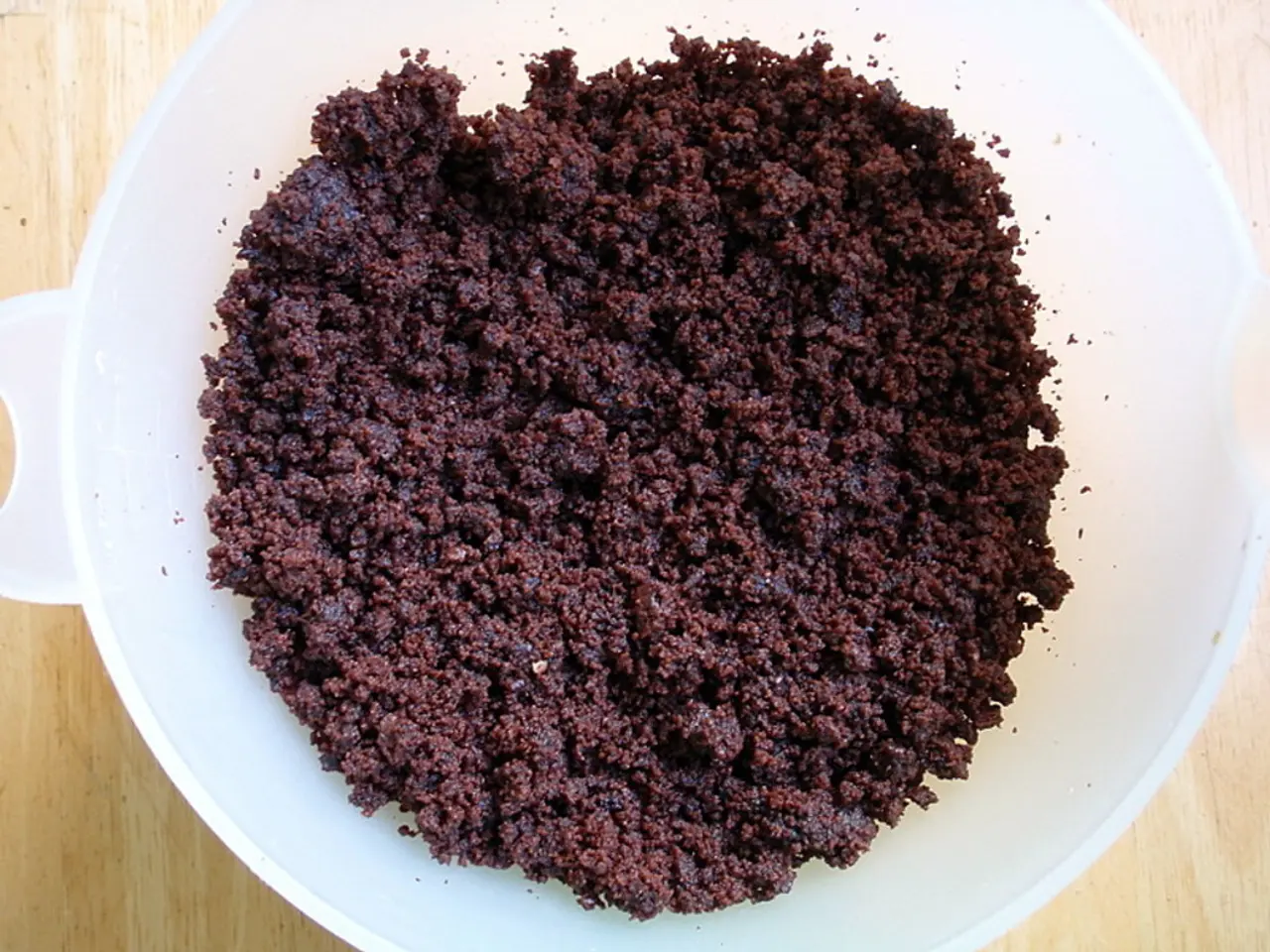Abnormal bowel movement: Understanding its significance and normality
Stringy stool, often appearing as thin, ribbon-like or jelly-like strands, can be a cause for concern for many individuals. This article aims to shed light on the potential causes, symptoms, and when it's necessary to consult a healthcare provider.
Firstly, it's important to note that a healthy stool is typically a couple of inches in diameter, whereas stringy poop appears much narrower. This discrepancy can be a sign of mucus in the stool, which is often caused by irritation or inflammation in the intestines.
Common causes of increased mucus in stool include gastrointestinal infections, Inflammatory Bowel Diseases (IBD), Irritable Bowel Syndrome (IBS), food sensitivities or allergies, and other less common conditions such as anal abscess, intussusception (in infants), proctitis, or cystic fibrosis. Temporary factors, such as colds, teething, or something the baby has eaten, may also be responsible in infants, but persistent stringy poop should be a cause for concern.
When it comes to symptoms, mucus in the stool may be accompanied by blood, severe or persistent abdominal pain, a significant change in bowel habits, signs of dehydration, fever, or weight loss. If these symptoms persist for more than a few days or recur frequently, it's crucial to consult a healthcare provider.
Chronic constipation can also lead to stringy poop due to blockages in the colon. Intestinal infections, colorectal cancer, and certain conditions such as a stretched or distended colon, narrowing or anorectal stricture, tiny growths or polyps in the colon, fecal impaction, inflammation of the colon, and abdominal hernias can also cause stringy stool.
If you experience any of these symptoms, a doctor may recommend a stool sample test to detect a bacterial or parasitic infection, a fecal occult test to check for blood in the stool, imaging tests such as CT scans or X-rays, colonoscopy to study the entire colon, or flexible sigmoidoscopy to examine the lower colon to diagnose the underlying cause.
While occasional stringy stools may not be a cause for alarm, frequent or persistent changes, especially when combined with other symptoms, warrant medical attention. For babies, call your pediatrician if stringy poop appears frequently, is accompanied by signs of illness, or you notice blood in the diaper.
Increasing fiber intake can help treat constipation and prevent stringy poop. For infections, doctors may treat with antibiotics, antiparasitic medication, or medication to relieve symptoms. Common symptoms of IBS include abdominal pain, bloating, gas, and diarrhea or constipation.
In conclusion, while stringy stool can be a symptom of various conditions, most cases have a good outlook, especially when a person receives early diagnosis and treatment. If you're experiencing persistent stringy stool or other related symptoms, it's essential to consult a healthcare provider for a proper diagnosis and treatment plan.
- Depression can sometimes lead to a lack of interest in fitness-and-exercise and nutrition, which may negatively impact health-and-wellness and potentially contribute to constipation, resulting in stringy stool.
- Predictive science can help medical-conditions professionals understand the various causes of constipation, including possible links between depression and stringy stool.
- Colonoscopy, a medical procedure used to examine the colon, can help detect colorectal cancer, a condition that may cause stringy stool when accompanied by other symptoms.
- COPD, or Chronic Obstructive Pulmonary Disease, is not directly related to stringy stool, but maintaining proper health-and-wellness through fitness-and-exercise, nutrition, and medical management can help alleviate constipation.
- Ulcerative colitis, a type of inflammatory bowel disease, is known to cause inflammation in the colon and often results in mucus and blood in the stool, leading to stringy poop.
- CBD, short for cannabidiol, is a compound found in cannabis plants that may help alleviate symptoms of conditions such as psoriasis and inflammatory bowel diseases, potentially reducing constipation and preventing stringy stool.
- AQ, or air quality, can indirectly affect health-and-wellness, as poor air quality can trigger allergies or exacerbate preexisting health conditions like COPD, potentially leading to constipation and stringy stool.
- Colitis, an inflammation of the colon, can cause mucus in the stool, which may appear stringy and often signals a need for medical attention to diagnose and treat the underlying condition.






